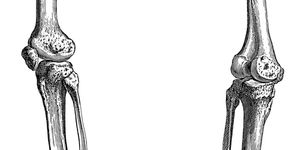Dieting Makes Hunger Synapses Louder
Yo-yo dieting, or the yo-yo effect refers to a cyclical process of weight loss and gain that many people who are overweight can experience. They go on a diet and lose weight, only to gain that weight back again later. Some people who are body-builders or athletes enter this cycle deliberately. There is still a lot of debate about the health effects of yo-yo dieting, but it has been associated with adverse health impacts and increased mortality. Scientists have now used a mouse model to show that when an individual is on a diet, the strength of signals to neurons that are related to hunger increases. Mice that were put on a diet ate more after the diet was over, and quickly gained weight. The findings have been reported in Cell Metabolism, and they can help researchers understand how the body maintains a healthy weight, and how it can be restored after dieting.
While researchers have investigated the short-term effects of dieting, this research team was more interested in how the brain was affected by a diet over the long-term, said study leader Henning Fenselau, a researcher at the Max Planck Institute for Metabolism Research.
In this work, the scientists put mice on a diet, and looked at the neural circuits that were altered. There are various groups of neurons in the hypothalamus that are known to promote feelings of hunger or fullness, also known as satiety; one of those groups is AgRP neurons, which help regulate hunger. In the dieting mice, stimulation to AgRP neurons increased, and this increase persisted long after the diet was over.
The researchers were also able to disrupt AgRP stimulation, which decreased the weight gain in the mice. This finding could translate into ways to reduce the yo-yo effect, suggested Fenselau. "In the long term, our goal is to find therapies for humans that could help [maintain] body weight loss after dieting. To achieve this, we continue to explore how we could block the mechanisms that mediate the strengthening of the neural pathways in humans as well."
Now we know more about the neural wiring diagrams that control hunger. Previous work has revealed crucial neurons that sit upstream of this signaling and physically connect to AgRP neurons, promoting hunger. This study showed that the physical link between those neurons strengthens considerably during a diet, in a process known as synaptic plasticity. This causes long-lasting and excessive hunger, noted study co-author Bradford Lowell of Harvard Medical School.
Sources: Max Planck Society, Cell Metabolism









